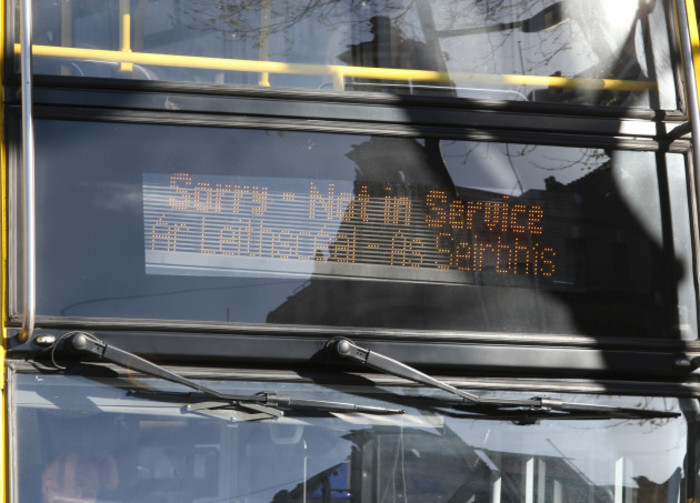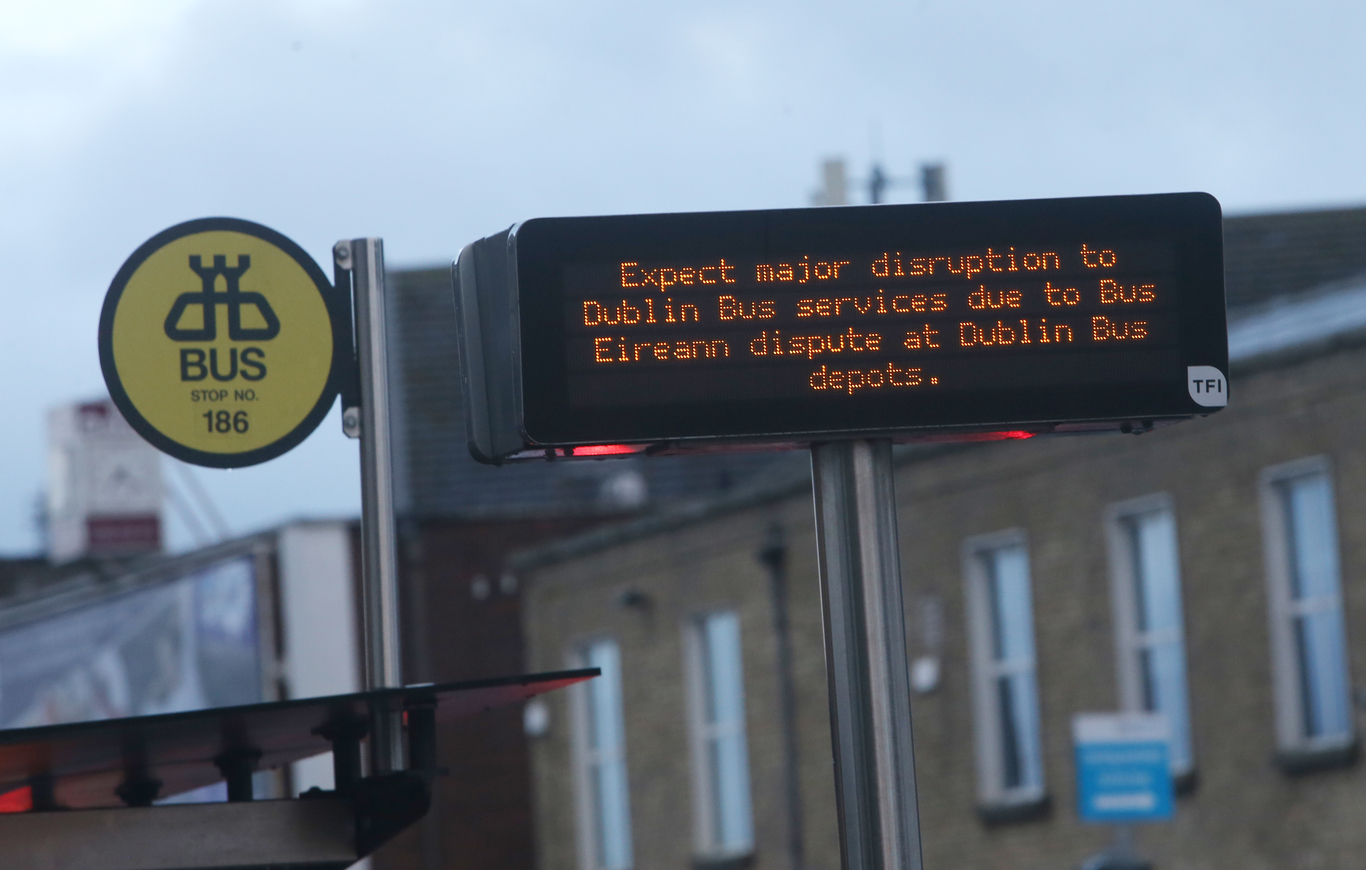Were Bus Eireann workers legally allowed to picket Dublin Bus and Irish Rail?
Striking workers caused chaos today when they picketed the other semi-state companies.
IF, LIKE MANY of Dublin’s commuters, you woke up this morning to hear of a transport strike crippling the city, you might have wondered how you and your staff would get to work.
Once you stepped out into a gridlocked Dublin, you may have quickly moved to wondering how this was possible with no notice given to Dublin Bus, DART or Irish Rail users.
Industrial action within Bus Éireann has been taking place over the last number of weeks. The National Bus and Rail Union balloted its members and engaged in official industrial action, which was notified in the normal course to the Bus Éireann management team.
This morning, Bus Éireann workers engaged in secondary picketing at depots belonging to Dublin Bus and Iarnród Éireann. Employees of Dublin Bus and Iarnród Éireann chose not to pass the picket line of their colleagues and some workers joined the picket.
The NBRU said it did not orchestrate or condone the pickets, which were lifted earlier, allowing Dublin Bus and Iarnród Éireann staff to go back to work.
But what exactly is secondary picketing, and how is it meant to work?
Secondary picketing
The picketing of a business other than the specific employer is known as secondary picketing.
In Ireland, such picketing is illegal unless the employer subject to the secondary picket has made special arrangements to circumvent the effects of legitimate industrial actions.
This is not the case in Ireland today, as Dublin Bus and Iarnrod Éireann were running services as normal and there were no efforts made to circumvent the Bus Éireann strike.

For a legitimate strike to take place, notice of at least one week should be served on the employer.
What will happen next?
We do not expect the picketing to return on Monday. However, if it does, it is likely that action would be taken to stop the picketing.
Diageo and Coca-Cola have been successful in the past in securing High Court injunctions to prevent secondary picketing of their premises when they were not directly involved in the industrial action.
It remains to be seen if Dublin Bus and Iarnród Éireann will take similar action.
What should you do in your business if you are impacted by the strike?
Many of your employees may have been late this morning. Legally it is the responsibility of the employee to turn up for work.
However, an employer should review that requirement as against the public environment. Given that no notice was provided to commuters, it would be unreasonable for an employer to seek to discipline any employee for turning up late today.
If it was the case that an employee did not turn up at all today, without making efforts to get to work using other means or public transport when it became available, an employer could review the misconduct in line with its attendance policy.
If your business was impacted today, take the opportunity to review if it is possible for employees to work from home or engage in flexible working with a later start and finish time.
If that’s not possible, do you have employees who live closer to your place of work and could be on stand-by if the picketing was to take place again on Monday?
You might also wish to remind employees that where possible they should think of alternative methods to get to work on Monday in the event that public transport is curtailed.
Julie Galbraith is an employment lawyer at Eversheds Sutherland.
If you want to share your opinion, advice or story, email opinion@fora.ie.






